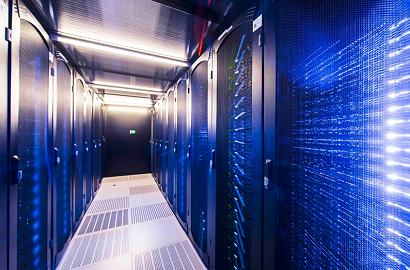Interxion expands presence with new data centre in Barcelona

The centre will be able to reach 90% of the population on the Iberian Peninsula and the south of France, with a latency of 4 milliseconds
The Dutch company Interxion, part of the US group Digital Realty, appears set on leading the neutral data centre market in the Mediterranean. After launching connectivity hubs in Marseille, Athens, Zagreb and Madrid, a second location in Spain has just been announced. The site acquired for the new infrastructure building is located in Sant Adrià de Besòs (Barcelona). This area is a key intersection point on the global internet highway across the Mediterranean region, connecting the Americas, Africa, the Middle East and Asia.
The Catalan data centre will also have a colocation facility: a rental space for customers to install their own servers and other hardware. The site has an IT power capacity allocation of 15 megawatts and is strategically located due to its proximity to major submarine cables and interconnection points. The company plans to begin construction later this year, and for the work to be completed by 2024.
Connectivity hub
Interxion explains that, as the fifth largest city in the European Union and as part of the region with the highest GDP in the Mediterranean, Barcelona is emerging as an important connectivity hub that will increase network resilience and diversification. Its proximity to Interxion's data centre in Marseille, the company's main communication node between Europe and the rest of the world, gives it a complementary role in terms of enhancing capacity.
The addition of the Barcelona and Madrid data centres will improve connectivity and enable Interxion's customers in Spain to reach almost 90% of the population on the Iberian Peninsula and the south of France, with a latency of 4 milliseconds. They will not only be able to exchange traffic within the region, but also to extend their services and expand their communities of interest around the world.
Submarine cable network
Interxion's Managing Director for the EMEA region, Jan-Pieter Anten, says that the Mediterranean has become “one of the main interconnection points between Europe and the rest of the world through its extensive network of submarine cables”, and explains the strategy for the roll-out of its offering: “This decision represents a critical step in expanding the coverage of PlatformDigital, further supporting our customers in the deployment of their critical services around the world as the need for data-driven services increases globally.”
Robert Assink, for his part, Managing Director of Interxion Spain, is convinced that the new Barcelona node “will further strengthen Spain's position as the main digital hub in Southern Europe", explaining that “International digital hubs typically have three specific characteristics: firstly, a robust data centre infrastructure; secondly, the interconnection of international terrestrial and submarine cable networks with local capillary networks; and thirdly, massive corporate data creation.”
Citing TeleGeography data, Interxion says that bandwidth in southern Europe has seen a year-on-year growth of over 30% since 2016. According to the same source, the total increase in transmission capacity in the region has been around 200%.
Photo: Interxion




